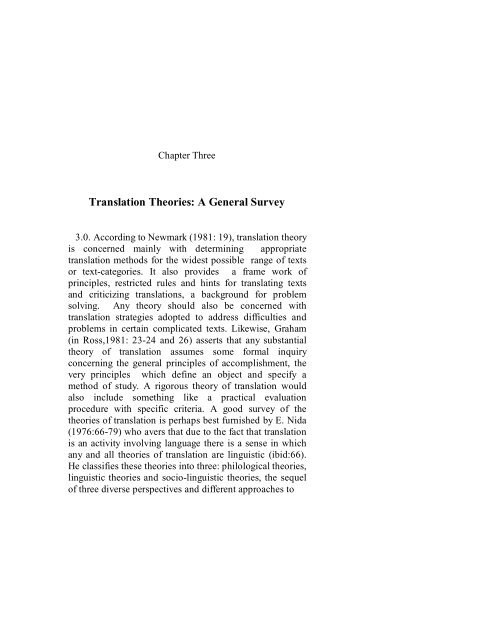424_2061_A.B.
424_2061_A.B.
424_2061_A.B.
- No tags were found...
You also want an ePaper? Increase the reach of your titles
YUMPU automatically turns print PDFs into web optimized ePapers that Google loves.
Chapter ThreeTranslation Theories: A General Survey3.0. According to Newmark (1981: 19), translation theoryis concerned mainly with determining appropriatetranslation methods for the widest possible range of textsor text-categories. It also provides a frame work ofprinciples, restricted rules and hints for translating textsand criticizing translations, a background for problemsolving. Any theory should also be concerned withtranslation strategies adopted to address difficulties andproblems in certain complicated texts. Likewise, Graham(in Ross,1981: 23-24 and 26) asserts that any substantialtheory of translation assumes some formal inquiryconcerning the general principles of accomplishment, thevery principles which define an object and specify amethod of study. A rigorous theory of translation wouldalso include something like a practical evaluationprocedure with specific criteria. A good survey of thetheories of translation is perhaps best furnished by E. Nida(1976:66-79) who avers that due to the fact that translationis an activity involving language there is a sense in whichany and all theories of translation are linguistic (ibid:66).He classifies these theories into three: philological theories,linguistic theories and socio-linguistic theories, the sequelof three diverse perspectives and different approaches to29
















